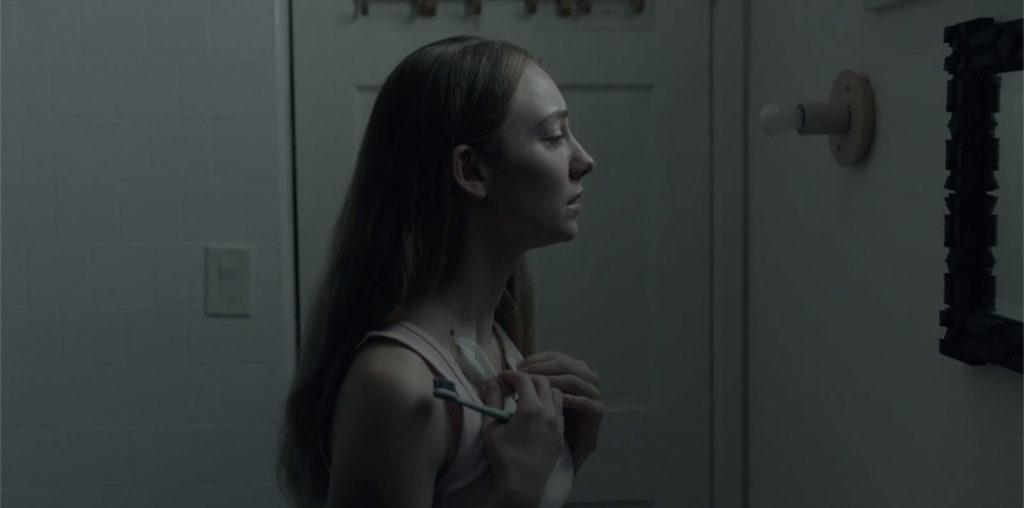
Each villain, hero, and victim; every plot, conflict, and conversation in non-documentary cinema is imagined. When we watch these movies, however, we become so immersed in the lives of the characters that we forget they are not real. Thus, the emotions of the characters extend to us; we laugh, smile, get angry, cry, and hurt. Danish director Christoffer Boe’s film “Reconstruction” capitalizes on our tendency to view cinematic fiction as fact and perceive illusion as truth.
Set in Copenhagen, “Reconstruction” unfolds as a dream-like, subtly sinister, non-linear story about two couples and love. Alex (Nikolaj Lie Kaas) is a young photographer who is relatively content with dating Simone (Maria Bonnevie). August (Krister Henrisksson) is a writer in his late fifties and is in Denmark’s capital city on business. His wife Aimee (Maria Bonnevie) keeps him company. Essentially, the film is about the peculiar ways in which these four individuals’ lives intersect, but it is primarily interested in what transpires as a result of an encounter between Alex and Aimee.
As Boe’s film illustrates the consequences of falling in love with a stranger, it references Lewis Carroll’s works “Alice in Wonderland” and “Through the Looking Glass” in narrative;” French New Wave director Alain Resnais’s film “Last Year at Marienbad” (1962) in tone; and the Greek myth about Orpheus and Eurydice in poetry (he went to Hades to bring her back to life but because he turned his head back to make sure she was behind him, she disappeared). After meeting Aimee in the subway, following her to a bar, and going to her hotel room, Alex wakes up in a world that looks like but cannot be the same one in which he went to sleep. His friends and loved ones claim they’ve never met him before and Alex’s reality begins to mimic the material for August’s new book.
Unconcerned with the issue of whether art imitates life or life imitates art, “Reconstruction” is a manifestation of August’s stance on love, which he explains in a scene where he is interviewed. He remarks that women and men approach love differently. A woman decides whom to love, but a man needs for love to be a surprise. Narratively speaking, Boe’s film explores August’s belief, but ideologically, “Reconstruction” is about our psychological investment in the characters. The minute we realize that we misconstrued or failed to recognize the true significance of certain scenes, a strong desire to figure out “what really happened” builds. But, as August narrates in the beginning of the film and then reiterates at the end, there is no reality. There is no “what really happened.” He tells us to “look closely” and we’ll see that it’s all just film, “a construction…but even so, it hurts.”
It’s convenient to simplify Boe’s agenda as an attempt to make fools of us, but he is merely reminding us that the film is just an illusion. “Reconstruction” toys with our feelings just enough to make us aware of ourselves but sufficiently refrains from manipulation-overload. Therefore, Boe’s method is less of a cop out and more an example of stellar, inter-textual filmmaking.
